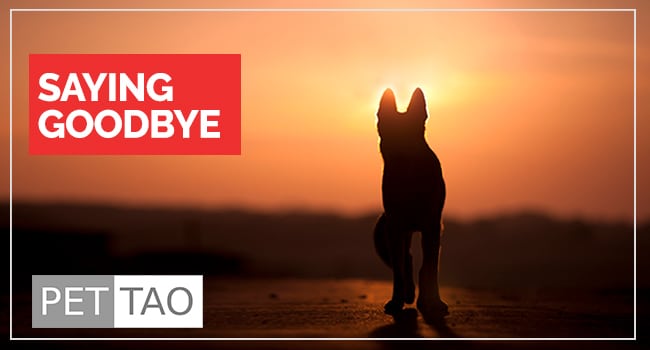The Loss of A Pet is Heartbreaking
Losing a pet is like losing your best friend. A pet is the one you can turn to when you’re happy, sad, anxious or excited.
Your pet greeted you at the door when you came home.
She slept at your feet for years.
Your pet was there for you through breakups, new relationships, and life’s milestones.
As your pet has taken care of you, you take care of your pet in return.
You fed her and walked her and played with her.
But then she got sick. Or was in an accident. And now she’s gone.
What is there to do? How do you cope?
Studies Show Pet Bereavement Is Real
Those who have recently lost a pet have higher levels of stress and lower quality of life, according to a new study by Lilian Tzivian from the Ben Gurion University of the Negev.
Quality of life was measured with physical, psychological, and related domains. Pet owners in the study had more positive results in these areas than the bereaved.
In fact, the study revealed the dog himself was previously a source of social support. This finding is interesting because social support is an important factor in rating quality of life.
“In the case of mourning for a person, social support is very common and expected, but when a pet dies people do not always grasp the depth of the bereaved owner’s sadness,” Tzivian wrote. “Lack of social support in the case of the death of a companion animal may strongly affect the owner’s grief reactions.”
1. Allow Yourself to Feel the Stages of Grief After the Loss of a Pet
Grief impacts everyone differently. You may experience some of the stages, but not all, and you can feel them in any order. Be kind to yourself during this difficult time.
Guilt Is One of the Most Painful Stages of Grief
After losing a pet, guilt occurs. Often, you feel responsible for your pet’s passing. Many people think “If only I was more careful,” or “I could have done more!”
But, these feelings are useless. Your pet’s departure is final.
Acceptance is more valuable than guilt.
Burdening yourself with guilt for the illness or accident that claimed your pet only makes it harder to move on.
Resolving your grief is an important step towards healing after losing a pet.
Denial Is an Inevitable Step in the Grieving Process
Denial is a natural step in the grieving process after losing a pet.
But, denial makes it difficult to move on and accept your pet is gone.
You may still look forward to your pet greeting you at the door.
You may still run home after work to feed them dinner.
Some feel like they’ll never love another pet again – as if it would be disloyal.
You Will Feel Anger While You Grieve – at Yourself and Others
You are angry at the illness, accident, or situation. You may be angry with the veterinarian who “couldn’t do more” for your pet.
Know your veterinarian, or the driver of the car, or the owner of the attack dog feels bad about you losing a pet, too.
Anger does not serve you. In order to bring peace and harmony back into your life, you need to let the anger go.
You cannot resolve grief while still holding onto anger.
Depression Is the Most Common Stage of Grief
Depression is a natural step in the grieving process.
But, if depression is overwhelming you, it can leave you powerless.
If depression is robbing you of energy and motivation, seek professional help.
2. Create Rituals
Hold a Funeral
Funerals allow you and your family to express your feelings openly. Ceremonies provide closure for those who need to say goodbye.
Don’t allow naysayers to tell you a pet funeral is inappropriate – do what feels best for you.
Host a Memorial
Memorials allow you to create a legacy.
There are many ways to honor your pet including:
- Plant a tree in memoriam
- Compile a photo album or scrapbook
- Engrave a piece of jewelry
- Donate to a pet charity
- Purchase a decorative urn for ashes
Remembering the love you shared with your pet will help you move on.
3. Wait to Adopt Another Pet
After losing a pet, it may seem like a quick bereavement fix to run out and get another pet.
But, you must mourn your old pet first.
You will be a better pet parent when you’re emotionally ready to accept a new furry friend into your heart and home.
When you are ready for a new pet, try not to find an identical match. You want a fresh start with your new friend. Try not to make comparisons to your old pet.
Additionally, avoid giving your new pet the same nickname as your old pet.
4. Seek Professional Help if You Need it
The loss of a pet is emotionally draining, and you must take care of yourself.
Do what’s best for you. Spend time with family and friends, attend social events, and plan to memorialize your pet.
Focus on the love you and your pet shared and not the bitter end.
Make sure you are eating well, exercising, and sleeping.
It may help to attend a pet bereavement group or volunteer with an animal rights group.
Allow yourself to cry when you feel the need.
Although grief may feel never-ending, know it does lessen with time.
How long did you wait to get another pet after the loss of a pet?
- Less than one month
- Less than 6 months
- Less than a year
- More than a year








